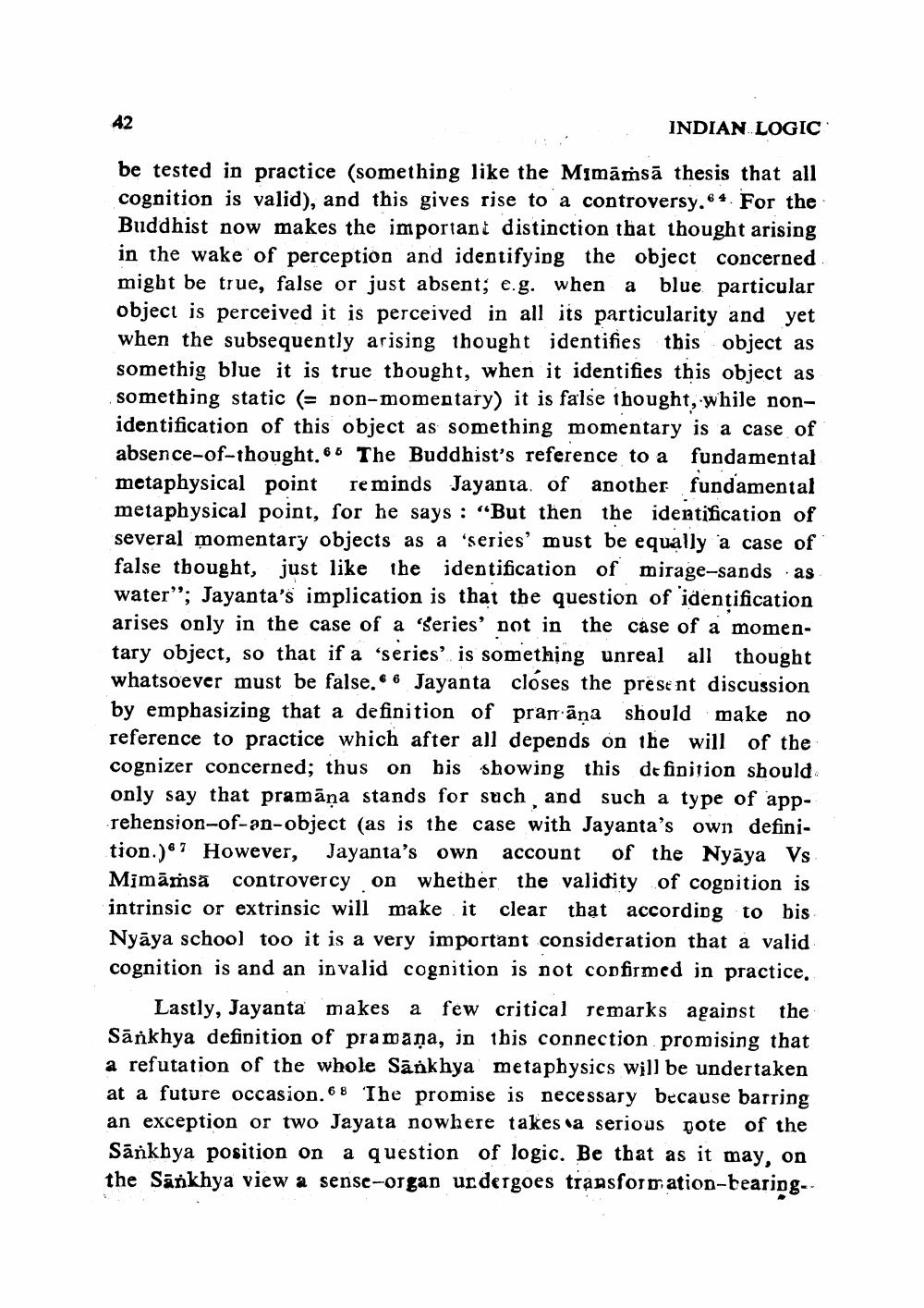________________
INDIAN LOGIC
be tested in practice (something like the Mimāṁsā thesis that all cognition is valid), and this gives rise to a controversy.6 4. For the Buddhist now makes the important distinction that thought arising in the wake of perception and identifying the object concerned might be true, false or just absent; e.g. when a blue particular object is perceived it is perceived in all its particularity and yet when the subsequently arising thought identifies this object as somethig blue it is true thought, when it identifies this object as something static (= non-momentary) it is false thought, while nonidentification of this object as something momentary is a case of absence-of-thought. 60 The Buddhist's reference to a fundamental metaphysical point reminds Jayanta. of another fundamental metaphysical point, for he says : "But then the identification of several momentary objects as a 'series' must be equally a case of false thought, just like the identification of mirage-sands as water”; Jayanta's implication is that the question of identification arises only in the case of a 'Series' pot in the case of a momentary object, so that if a “series' is something unreal all thought whatsoever must be false. 6 Jayanta closes the present discussion by emphasizing that a definition of prarrāna should make no reference to practice which after all depends on the will of the cognizer concerned; thus on his showing this definition should only say that pramāna stands for such and such a type of apprehension-of-an-object (as is the case with Jayanta's own definition.)? However, Jayanta's own account of the Nyāya Vs Mimāṁsa controvercy on whether the validity of cognition is intrinsic or extrinsic will make it clear that according to bis Nyāya school too it is a very important consideration that a valid cognition is and an in valid cognition is not confirmed in practice,
Lastly, Jayanta makes a few critical remarks against the Sānkhya definition of pramaņa, in this connection promising that a refutation of the whole Sankhya metaphysics will be undertaken at a future occasion.68 The promise is necessary because barring an exception or two Jayata nowhere takes a serious pote of the Sānkhya position on a question of logic. Be that as it may, on the Sānkhya view a sense-organ urdergoes transforp ation-bearing -




